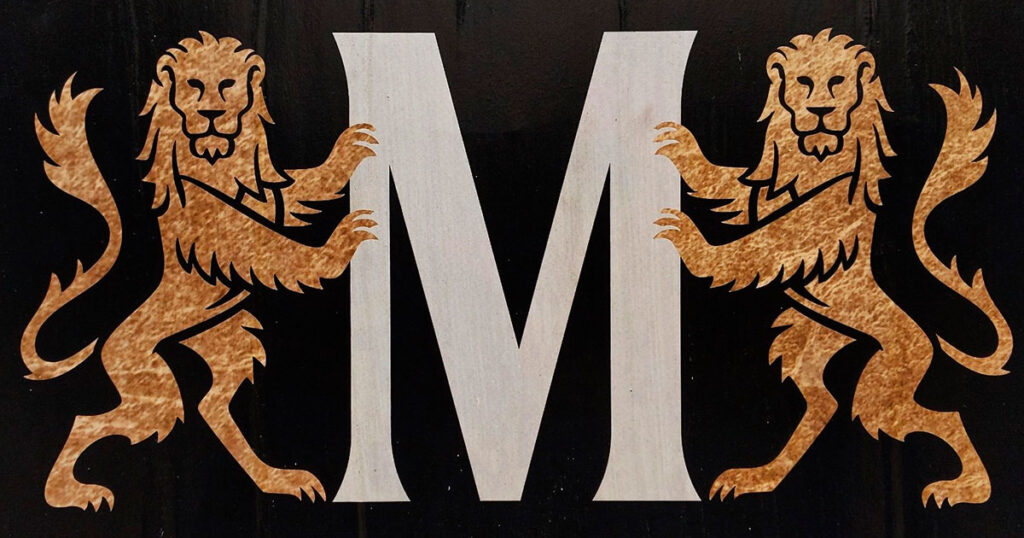
There are 26 letters in the alphabet, so why did so many of the names in the article I was reading in The New Yorker begin with the same one, M? The article, “Trump’s Last General,” was about generals, Trump’s generals, the ones in the Trump administration or those carefully keeping out of it, though the first M name wasn’t a general at all but the French president, Macron. What followed were more Ms, some of them generals and some not: Mattis, Milley, Miller, Meadows, McMaster, McCarthy, Mick Mulvaney, several Marks and Mikes, and one Michael. How was I going to keep everyone straight? Especially with my ears humming: mmmm.
Once in a fiction class I took, the instructor told us to do our audience a favor and give different sounding names to characters. It would be easier for our readers to keep them straight. I often remember that simple rule when I come across a pair of like-sounding names, either when reading or in a film. But writers are supposed to make use of all available devices, so you wouldn’t just randomly name your characters. You’d use names to reinforce your themes. Flannery O’Conner, who loved a good symbol, comes to mind. The dour character who changed her name from Joy to Helga; the ever optimistic Mrs. Hopewell.
Letting just the first letter of the name suggest the themes under study is to turn a helpful hint into a guessing game. But I did wonder. The most obvious answer is that M is for military, or for Marines. This was history, however, not fiction. All those Ms weren’t because of an author’s overriding fondness for names with M, and they weren’t guiding nudges to make sure the reader understood a point. No, there was nothing purposeful about them. Instead, simple coincidence explained them. No oversight or riddle or private meaning at play. I could hardly complain. Be that as it may, with so many names so reminiscent of one another, and so many job titles as well, I began to lose the thread. The confusion was compounded because, although the authors used last names, a quoted source might use a first name. “But wait, is this a new Mike or the just-mentioned Mike?” Was it Mark Esper or Mark Milley? Mike Pompeo or Mike Pence? True, some names mentioned didn’t begin with M, but they were the exception that proved the rule. What’s more, the principal exception, appearing in every other paragraph—Kelly—practically rhymes with Milley, the focus of the article, providing a little phonetic fun that seemed to subvert its serious tone.
There are simple rules to choosing a name: you want it to be unusual enough to stand out but still easy to pronounce and spell. In Asturias, Covadonga will surely evoke the story of the divine message delivered to Pelayo, fighting the invading Moors in the eighth century. For me, Blanca, Paloma, and Rocío, which mean white, dove, and dew, are also memorable names, though to a Spaniard, used to them from birth, they do not sound particularly poetic. In the article about Trump’s generals, the names that stood out were Dunford and Tillerson. I pictured the Ms chasing each other in a circle, as Dunford and Tillerson peered down from a ridge, like a pair of cowboys, disgusted by the display. And the fact is, they were: both men held themselves aloof from the fray and got out early. Others clearly did not want any part of the action, and never got in.
From the article, which read like an adventure story, I learned many things I should have known about the workings of my home country. So many advisers! So much counsel! So many conflicts, bruised sensibilities, aspirations both high and low. Is that the why of the Ms—many and much? It was not for murder, though the tale was exciting enough. Such were my thoughts as I consumed this highly engaging and rather dismaying chronicle of appointments, in-fighting, schemes, and morals. Maybe M is for mischief. Or perhaps, I thought, against all odds, M is for the morals—those of the heroes, that won out over self-advancement and self-protection. More than one adviser stuck to his post and endured embarrassment and insult instead of resigning, because that was the best way to keep Trump in check and to safeguard the nation from worse.
Not all the people named were moral. According to the story, some were amoral, others immoral, and one character appeared plain crazy. M for mad? With no better answer coming to mind, I propose that M is for mystery.
Could it be I’m wasting my time trying to decipher the signs? Maybe the names really don’t mean a thing, no one planned the preponderance of Ms, and no one at the editing stage okayed the strange coincidence. Maybe the characters, like the authors Susan B. Glasser and Peter Baker, “didn’t have no choice,” as Sandy Posey sings in “Born a Woman,” a 1966 country song written by Martha Sharp. As the song’s narrator knows of her sex, of being born a woman, it just happened that way, which I find more and more is the explanation for so much that occurs, despite our attempts to account for and control the details, and read meaning into everything. And when we can, write it in.

